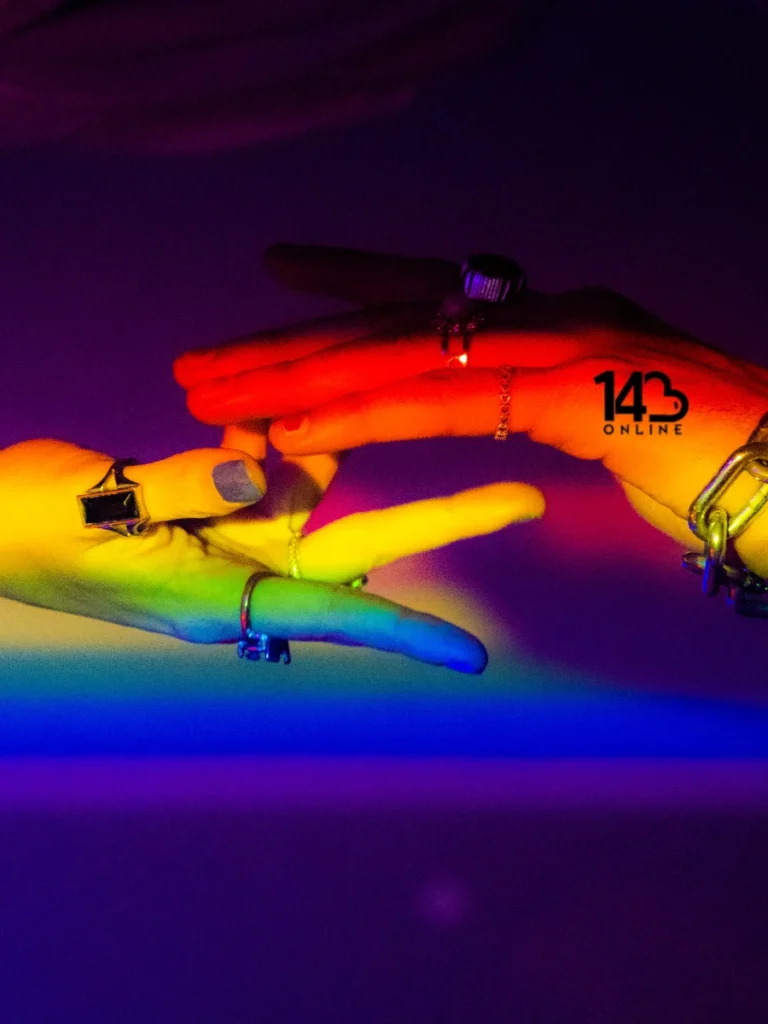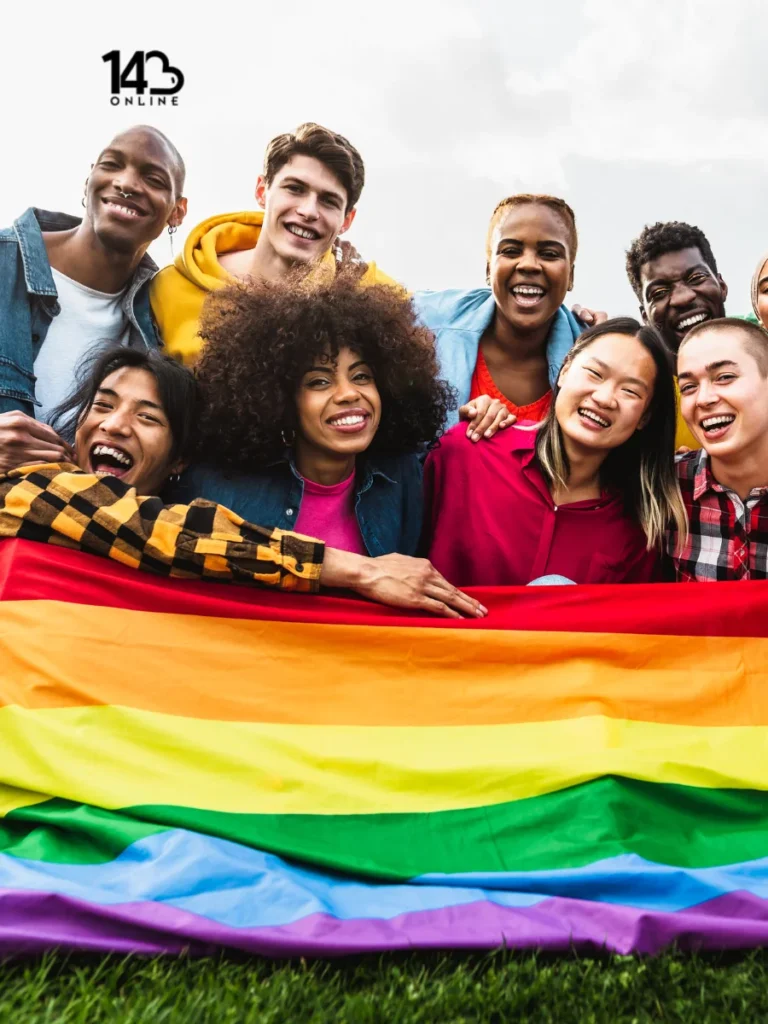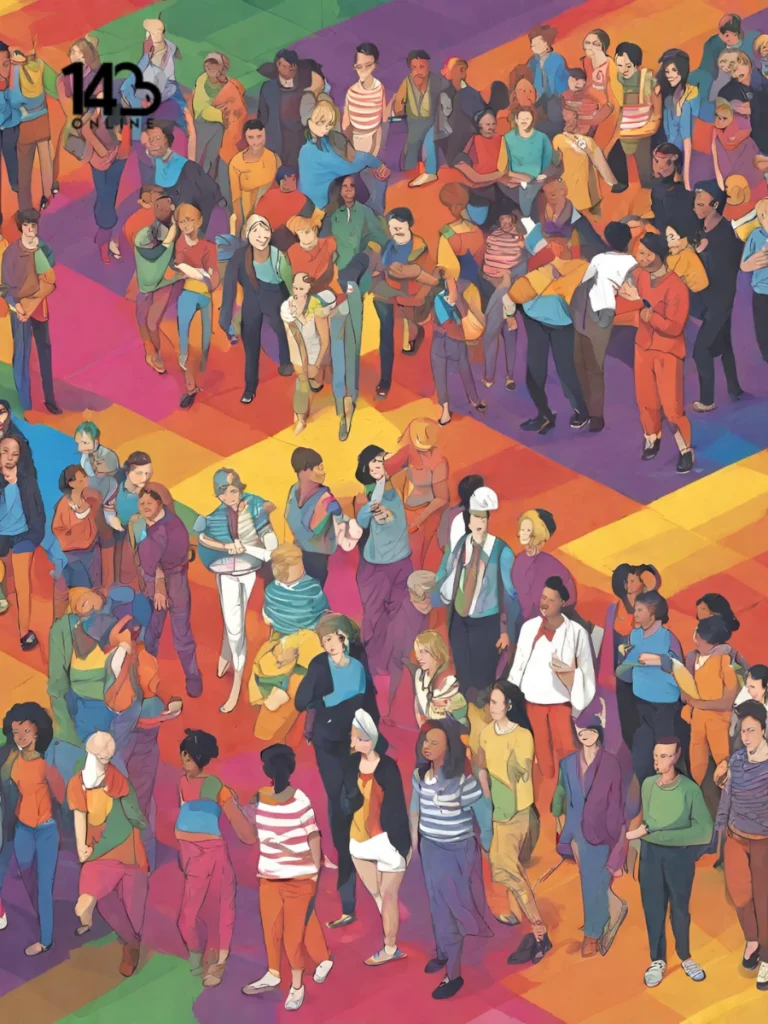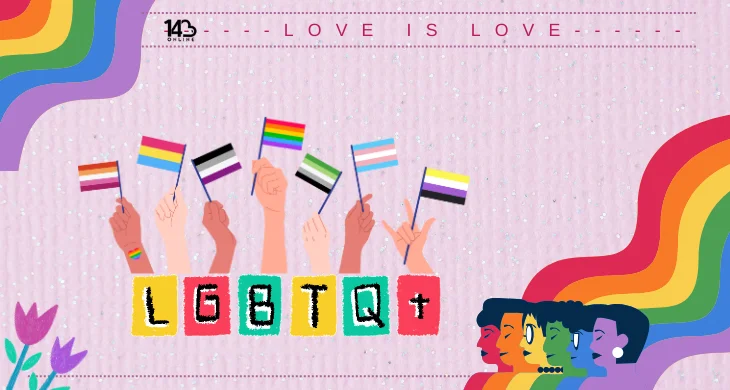The world is still grappling with issues of discrimination and prejudice, it’s essential to celebrate and adjudge the strides made towards the acceptance of LGBTQ+ individuals. Love knows no boundaries, and everyone deserves the freedom to love and be loved, irrespective of gender identity or sexual orientation.
In this article, we will explore the various aspects of LGBTQ+ acceptance, from the history of the LGBTQ+ movement to current trends in common culture. We will also discuss the importance of inclusivity and the impact of language on the LGBTQ+ community.
History of the LGBTQ+ Movement
The LGBTQ+ movement has a complex history spanning several decades. The movement gained momentum in 1960s and 70s when LGBTQ+ individuals began to organize and demand equal rights. The Stonewall Riots of 1969 marked a turning point in the movement, as LGBTQ+ individuals fought back against police brutality and discrimination.
Since then, the LGBTQ+ movement has made world-shaking progress, including the decriminalization of homosexuality, the legalization of same-sex marriage in many countries adopted and the protection of LGBTQ+ individuals from discrimination in employment and housing agreed.

Popular culture has played a significant role in promoting LGBTQ+ acceptance and visibility. From TV shows like “RuPaul’s Drag Race” to movies like “Call Me By Your Name,” LGBTQ+ individuals have become more visible in media.
The music industry has also seen a development in LGBTQ+ representation, with artists like Lady Gaga, Troye Sivan, and Lil Nas X openly embracing their identities and using their platforms to advocate for LGBTQ+ rights.
Importance of Inclusivity

Inclusivity is essential for promoting LGBTQ+ acceptance. It involves creating an environment where everyone feels valued and respected, irrespective of their sexual orientation or gender identity.
Inclusivity can be achieved by using inclusive language, such as using gender-neutral pronouns and avoiding assumptions and justify someone’s sexual orientation or gender identity. It also catches by creating spaces that are welcoming and safe for LGBTQ+ individuals, such as LGBTQ+ community centers and LGBTQ+ affirming places of worship.
Impact of Language
Language plays a captious role in shaping everyone’s perceptions and attitudes toward the LGBTQ+ community. The use of derogatory language and blurs can be harmful and contribute to the discrimination and marginalization of LGBTQ+ individuals.
On the other hand, using inclusive language can help create a more accepting and welcoming environment. For example, using gender-neutral language in job postings can attract a more diverse pool of candidates and help reduce bias.
Challenges and Discrimination

Despite the strides we’ve made, LGBTQ+ folks still deal with a lot of unfair treatment. Imagine facing hate and violence just because of who you love or how you identify yourself. These awful acts are called hate crimes, and they happen way too often to LGBTQ+ people.
Now, think about going to work every day worried that you might be treated unfairly or even fired because of your sexual orientation or gender identity. This is what workplace discrimination looks like, and it’s a big problem for many LGBTQ+ individuals.
Healthcare is another area where LGBTQ+ folks often face hurdles. Picture needing medical help, but being afraid to seek it because you’re worried about being judged or mistreated by doctors or other healthcare providers. This fear keeps many LGBTQ+ people from getting the care they need.
So, despite all the progress we’ve made, it’s clear that discrimination against LGBTQ+ individuals is still a major issue. We need to work together to make sure everyone is treated with respect and fairness, regardless of who they are or who they love.
Progress and Celebration

Despite the challenges, there’s also a lot of good stuff happening for LGBTQ+ rights. Just imagine, in some places, two people of the same gender can now get married legally, just like any other couple. That’s a big deal! It means love wins, no matter who you are.
Plus, there are new laws in some countries that make it illegal to discriminate against LGBTQ+ people. This means they can’t be treated unfairly just because of who they love or how they identify. It’s a step in the right direction towards equality and acceptance for everyone.
So, even though there’s still work to be done, let’s celebrate these victories and keep pushing for a world where everyone can love and live freely, without fear of discrimination.
Global Perspective

Let’s take a look around the world and see how LGBTQ+ people are treated differently in different places. In some countries, like Canada and the Netherlands, they’re welcomed with open arms. People there are cool with love in all its forms, and laws protect LGBTQ+ folks from discrimination.
But in other places, it’s not so great. Imagine living in a country where being LGBTQ+ could get you thrown in jail or even worse. Yeah, there are still some places where that’s the reality. It’s not fair, but it’s the truth.
This big gap between countries shows us how much work still needs to be done. We’ve got to keep speaking up and fighting for LGBTQ+ rights, not just in one country, but all over the world. Everyone deserves to love who they want and be who they are, no matter where they live.
Conclusion
Celebrating LGBTQ+ acceptance is crucial in fabricating a more inclusive and accepting society. While significant progress has been made, there is still much work to be done to achieve full equality for LGBTQ+ individuals. Inclusivity and the use of inclusive language can help create a more accepting environment, while popular culture can continue to boost LGBTQ+ representation and visibility.
Love knows no boundaries, and by embracing LGBTQ+ acceptance, we can create a world where everyone can love and be loved, without fear of discrimination or prejudice.
You may also love to read
“I love you” in 143 different languages
Frequently Asked Questions
Que: What is LGBTQ+ ?
Ans: LGBTQ+ stands for lesbian, gay, bisexual, transgender, queer/questioning, and more. The “+” means there are other identities, too.
Que: Why is it important to accept LGBTQ+ people ?
Ans: Accepting LGBTQ+ people is super important because it helps everyone feel safe and accepted for who they are. Nobody should be treated badly because of who they love or how they identify.
Que: How can I help LGBTQ+ people if I’m not LGBTQ+ myself ?
Ans: You can help by learning about LGBTQ+ stuff, supporting fair rules, and standing against unfair treatment and mean comments.
Que: What are some wrong ideas people have about LGBTQ+ folks ?
Ans: Some people think being LGBTQ+ is a choice or a trend, or they believe untrue things about gender and love. It’s important to understand that everyone’s different and that’s okay.
Que: Where can LGBTQ+ people get help and support?
Ans: LGBTQ+ folks can find help from LGBTQ+ groups, places in their community, online chats, and local groups of friends who understand and support them.

